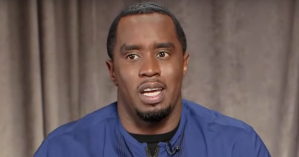As the coronavirus spread, Starbucks stores reportedly stayed open even though workers showed symptoms of COVID-19, the illness caused by the virus. Employees told BuzzFeed News the stores often stayed open and employees continued working, even as workers and customers showed signs of the illness. Starbucks has since limited sales at most stores to only drive-thru orders, but that decision was not made until Saturday.
BuzzFeed spoke with more than 70 Starbucks employees across the country, many of whom described chaos and confusion at their stores on how to respond to the growing crisis. Fourteen employees working in eight states told the outlet they served customers who were coughing. Sixteen employees said they could not get paid sick leave to self-quarantine for two weeks, even if they had symptoms similar to COVID-19. They also pointed out they could not get tested, like many Americans, so they could not be certain if they had the coronavirus while serving customers.
Videos by PopCulture.com
“We’re learning as we go,” a Starbucks spokesperson told BuzzFeed. “Information on this virus is coming in every single day. We’re constantly listening to our partners, and once we were able to understand some of the feedback and some of the challenges they faced, we took actions.”
Starbucks said it would not comment on the specific incidents detailed in the report without further details. However, almost all sources spoke with BuzzFeed on the condition of anonymity. The company did say it was following guidelines set by the Centers for Disease Control and Prevention and local officials. They “close the store for a deep clean” if they learn of an employee possibly being exposed to the coronavirus.
The company recently expanded its catastrophe pay policy, which will cover employees who feel unsafe for up to 30 days. Any employee still working will receive $3 more than usual through April 19.
While many employees praised the recent moves, some told BuzzFeed News they were disappointed the measures were not put in sooner. “To be entirely honest it felt too little, too late and like a backtrack from the public backlash they were starting to get,” one Washington state employee said.
In one case, a Louisiana employee claims she reported feeling sick to her manager on March 4, the week before the WHO declared the coronavirus a global pandemic. The manager told her to continue her shift. Afterward, she went to an urgent care clinic, where she was told she probably had the flu. At that time, she could not be tested for the coronavirus. After using up all her paid sick time, she went back to work and noticed nothing changed.
Starbucks first expanded catastrophe pay on March 11 in the U.S., but several employees told BuzzFeed there was still confusing red tape they had to jump though to be eligible. At one point, they were told they had to have been tested for COVID-19, which is still difficult to do in the U.S. Without one, an employee showing symptoms could only get three days of catastrophe pay. If an employee needed more, they were encouraged to use regular sick days.
On March 15, Starbucks said it would only serve to-go and drive-thru orders. This meant customers could still go through the lobby to pick up their orders. It was not until Saturday that Starbucks finally closed lobbies and began only serving drive-thru orders. Rossann Williams—EVP and president of U.S. company-operated business and Canada, admitted the decision came after pressure from employees.
“We’ve all recognized over the last week the challenges and complexities of trying to reduce ‘social gathering’ in our cafes even as we removed furniture and reduced our services to grab-and-go,” Williams wrote in an open letter to employees. “While we have worked hard to exceed any public health requirements, our cafes in some areas are experiencing high traffic, and we need to do more to prevent the spread of this virus.”
Photo credit: Getty Images









